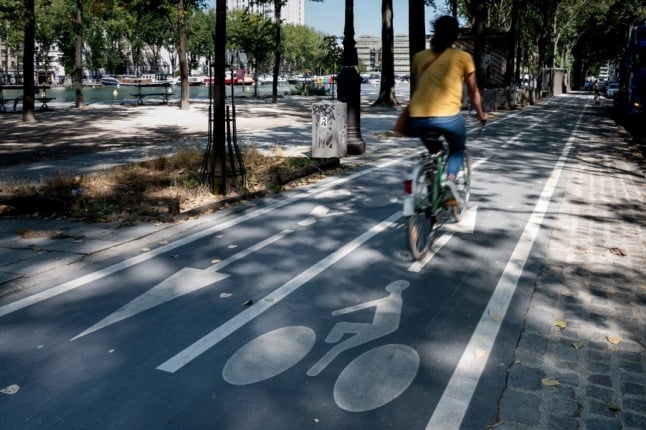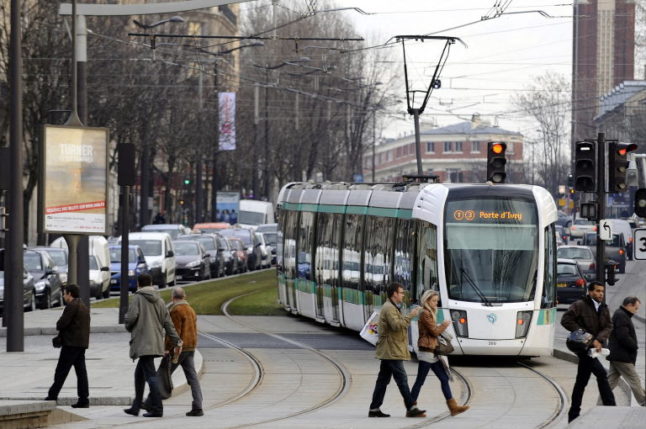Socialist mayor Anne Hidalgo, who runs Paris with support from the Green party, placed a push for more bike-friendly policies at the centre of her platform that got her re-elected by a wide margin in June of last year.
She is now also the Socialist party’s candidate in next year’s presidential election, hoping to unseat President Emmanuel Macron, but her campaign has got off to a woeful start with single-digit ratings.
Her policies have found wide support among the capital’s urban elites with short commutes, but they are seen as a much harder sell in the rest of the country.
“Our target is to make our city 100 percent bikeable,” David Belliard, deputy mayor in charge of urban transformation and Green party member, told AFP.
Some €180 million of new spending is earmarked for infrastructure, including plans for major bike routes across the city and into surrounding suburbs, and additional measures to make crossings and key entry points into inner Paris safer for cyclists, Belliard said.
Some flashpoints will get dedicated paths for cyclists and pedestrians completely separate from any car traffic, he added.
The city already spent €150 million on an initial biking plan, calling this the start of a “revolution” for the capital.
An added sense of urgency came with the Covid-19 pandemic that sparked a rapid extension of the city’s cycling path network, dubbed “corona-pistes”, as commuters shunned public transport for fear of infection.
As part of the new plan, those lanes, often hastily built to meet sudden demand, are to be made permanent and secure.
By 2026 the Parisian network of safe cycling paths is to total 180 kilometres. Cyclists will be allowed to use one-way streets against oncoming car traffic on another 390 kilometres of streets.
The mayor’s bike-friendly policies have sparked anger from motorists, with decisions such as turning stretches of urban motorways along the river Seine over to bikes and pedestrians.
Paris now often makes it into the top leagues of the world’s most bike-friendly cities, ahead of any other mega-city, although still well behind European cycling models Copenhagen and Amsterdam.
The city also plans to help prevent bike theft, which Belliard said was “one of the obstacles to bicycle use”.
By 2026, he said, Paris would have 100,000 new dedicated parking spots for bikes, of which 40,000, notably near train and metro stations, would be guarded.
Paris will also curb inner-car traffic further, aiming to end cross-city car transit completely, and cutting car traffic by half in a designated city centre zone.
Schools in the capital are to boost bike training to ensure that “all young Parisians know how to ride a bike when they leave primary school”, Belliard said.
Hidalgo, who will also face Green candidate Yannick Jadot in the election, is now looking to kickstart her flagging presidential campaign with a rally in the city of Lille on Sunday.



 Please whitelist us to continue reading.
Please whitelist us to continue reading.
One can only hope she doesn’t win the election for France’s sake. She’s already doing her best to turn Paris into a living museum.😆